The tenth anniversary meeting of the “Valdai International Discussion Club” –a forum that brings together foreign Russia experts with top Russian officials, politicians, journalists and academics—conveyed two strong messages from the Kremlin: Russia is fully back on the world stage seeking a leadership role; and Russia offers the world an alternative value system to that of the West, which has lost its moral compass. No one made these points more vigorously than Vladimir Putin himself, who has dined with the group for the past decade. He was in top form, exuding self-confidence and decisiveness. Yet the forum itself, though Kremlin-sponsored, also had discordant voices, including several vocal critics of the way Putin’s Russia is run.
The meeting this year took place in a picturesque resort on Lake Valdai, 250 miles from Moscow. It was the largest ever, with more than 200 participants. The official theme was “Russia’s Diversity for the Modern World” and focused on how Russia should define its national identity. In some ways, every Valdai meeting—and I have attended all ten—has had as its underlying theme the “whither Russia question”, even at the session in Siberia when we were discussing whether Russia was indeed an energy superpower. But this year the question of Russia’s uniqueness and its place in the world was the main focus.
Sergei Karaganov, one of the meeting’s co-organizers, was hardly upbeat. He began the forum on a cautionary note, saying that Russia had wasted the last twenty years and that the only idea that still unites Russians is their victory in World War Two.
Unlike in previous years, both the liberal and moderate nationalist political opposition was represented. Two of the most notable interventions were by Yevgeny Roizman, the controversial newly-elected major of Yekaterinburg and Ksenia Sobchak, daughter of Anatoly Sobchak, the liberal mayor of St. Petersburg who gave Putin his post-Soviet political start in the early 1990s. Roizman gave a spirited defense of the importance of ending politics as usual in the corrupt provinces. Sobchak made an impassioned plea for her generation of urban, educated 30 –somethings. Her message: we reject the traditional Russian political patronage model, we don’t want a president who addresses us as a father talks to his children, we want to be treated as independent adults responsible for the decisions they make and we don’t want to rely on the state. And, she added, we didn’t grow up in the USSR, we have no nostalgia for the Soviet Union, we don’t care about Russia being a great power and we reject anti-Americanism. Indeed, we like the West.
One of the eternal questions about Russia’s identity—whether Russia is European, Asian or Eurasian—was addressed in a day-long session at the Iversky monastery, founded in 1653 and elegantly restored in recent years. In a panel highlighting Russia’s role as a multi-ethnic, multi-confessional state whose inhabitants have for centuries included Orthodox Christians, Jews, Moslems and Buddhists, Metropolitan Hilarion delivered a strong message. Russian Orthodox Christians, he said, are the true harbingers of traditional Christian values, while Western Protestants have embraced liberal values on issues such as abortion, homosexual rights and gay marriage that undermine Christian morality. These views were reflected in President Putin’s prepared speech, when he reiterated that Russia supports traditional Christian morality and opposes same-sex marriage. Moreover, both Putin and the Russian clergy emphasized that Orthodox Christians and Moslems share a commitment to traditional morality, highlighting their common bonds – and differentiating them on common grounds from the West.
One of Putin’s main foreign policy projects for his third term is his proposed Eurasian Union, a topic that provoked some lively discussion. Russian speakers argued that the Kremlin had “left the imperial paradigm behind”, and that this union would be an organization of equals akin to the European Union. Moldovan and Ukrainian speakers, by contrast, discussed the growing economic and political pressure that Russia is putting on them to reject the EU in the run-up to the Vilnius summit in November. Brussels is poised to offer Ukraine and Moldova Association Agreements that Russia claims would adversely impact both countries’ continuing economic ties to Moscow. Without Ukraine, the Eurasian Union will not fulfill the Kremlin’s ambition to create a grouping of post-Soviet states as a counterbalance to the European Union.
Russia’s growing global role in the wake of its Syria initiative was the main focus of discussions with the top officials who came to Valdai—Foreign Minister Sergei Lavrov, Defense Minister Sergei Shoigu and head of the Presidential Administration Sergei Ivanov. They were clearly buoyed by the fact that Russia had taken the initiative in organizing the agreement to rid Syria of its chemical weapons, and stressed that, they favor a strong, secular Syria. The Opposition, they claimed, was up to 75% controlled by Al Qaeda. There seemed to be agreement that not all of the chemical weapons would be found and destroyed, but that enough could be destroyed to accomplish Russian and American goals. And they repeated Russia’s claim that chemical weapons were used only by the Opposition and not by Assad’s own forces.
Shoigu addressed the question of military reform by quoting Russia’s pre-revolutionary Prime Minister Pyotr Stolypin who said “Give us money and time, and you won’t recognize our armed forces.” He expressed concern about the situation in Afghanistan after NATO’s withdrawal next year, and questioned who would form the next generation of leaders in Kabul. He reiterated that U.S. missile defense programs were ultimately aimed at Russia, not Iran or North Korea, but also suggested developing joint U.S-Russian ABM systems. NATO, he said, is a threat to Russia. What else was NATO enlargement, if not directed against Russia? His message to the group-no more new entrants to NATO.
In previous years, President Putin has met with foreign participants only in a private setting, but for this tenth anniversary the format of the Putin meeting changed. He sat on the stage with four discussants—former German Defense Minister Volker Ruehe, former Italian Prime Minister Romano Prodi, former French Prime Minister Francois Fillon and President of the U.S-based Center for the National Interest Dimitri Simes. They addressed foreign and Russian participants and the four-hour meeting was televised.
Putin gave a vigorous defense of Russia as the standard-bearer of traditional Christian morality, arguing that the United States and Europe had rejected the Christian roots that form the basis of Western civilization. Criticizing “excessive political correctness” he declared that the European multicultural project had failed. He also warned that attempts by un-named powers to revive the model of a unipolar world had also failed. Stressing Russia’s right to have a seat at the table on all decisions of major international importance, he invoked the times when Russia had made an important contribution to world peace—the Congress of Vienna in 1815 and the Yalta Conference in 1945. He warned that when Russia was excluded—for instance from the 1919 Treaty of Versailles—this led to war. His message on Syria was clear—Russia took the initiative and had helped the United States by proposing an agreement to rid Syria of its chemical weapons stockpiles. And it expects to continue to be respected as an indispensable global player.
For anyone who has followed the Kremlin’s fraught relationship with the Opposition since the December 2011 Bolotnaya demonstrations protesting the results of the Duma elections, Putin’s interactions with representatives of the Opposition appeared to represent a shift in policy. He answered their questions about the need for political reform and more individual freedom by suggesting that these issues will be examined in the future—without committing himself to any particular course of action. The fact that these exchanges were televised live gave the impression that the Kremlin feels confident enough that the Opposition represents no real threat that it can engage in a dialogue with its more mainstream representatives. After all, there were no extreme nationalists or hard-core socialists there. Opposition leader Alexei Navalny, who won 27% of the vote in the recent Moscow mayoral elections, was also absent, having apparently turned down an invitation to participate.
Putin was evasive about his future plans. When asked if he would run for office again in 2018, he did not rule it out. He noted approvingly that Angela Merkel was about to win a third term, as he had last year. He certainly gave the impression of being fully engaged, with ambitious—albeit undefined– plans for Russia. The Russian economy may be experiencing low growth rates, but the main Valdai message was that Putin’s Russia is eager to engage the world, offering an alternative to a troubled West that has rejected major tenets of its own civilizational heritage.
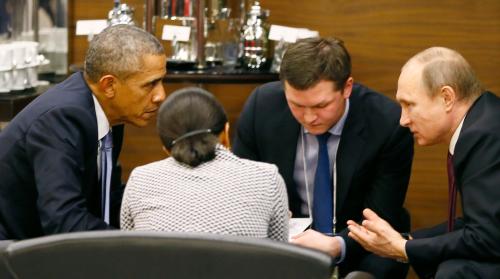

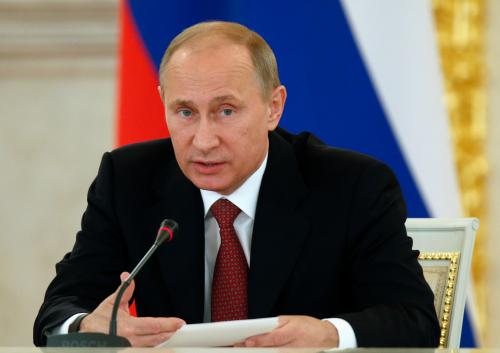
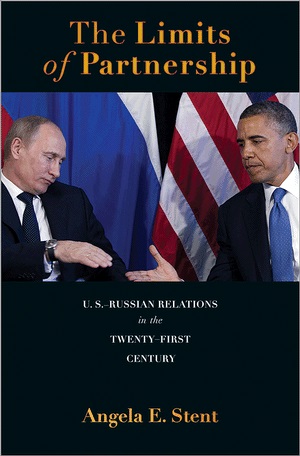
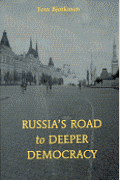
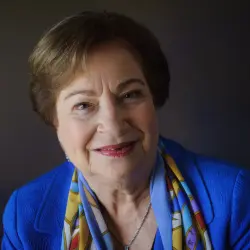


Commentary
The Future of Russia: Observations from the Tenth Annual Valdai Conference
October 10, 2013